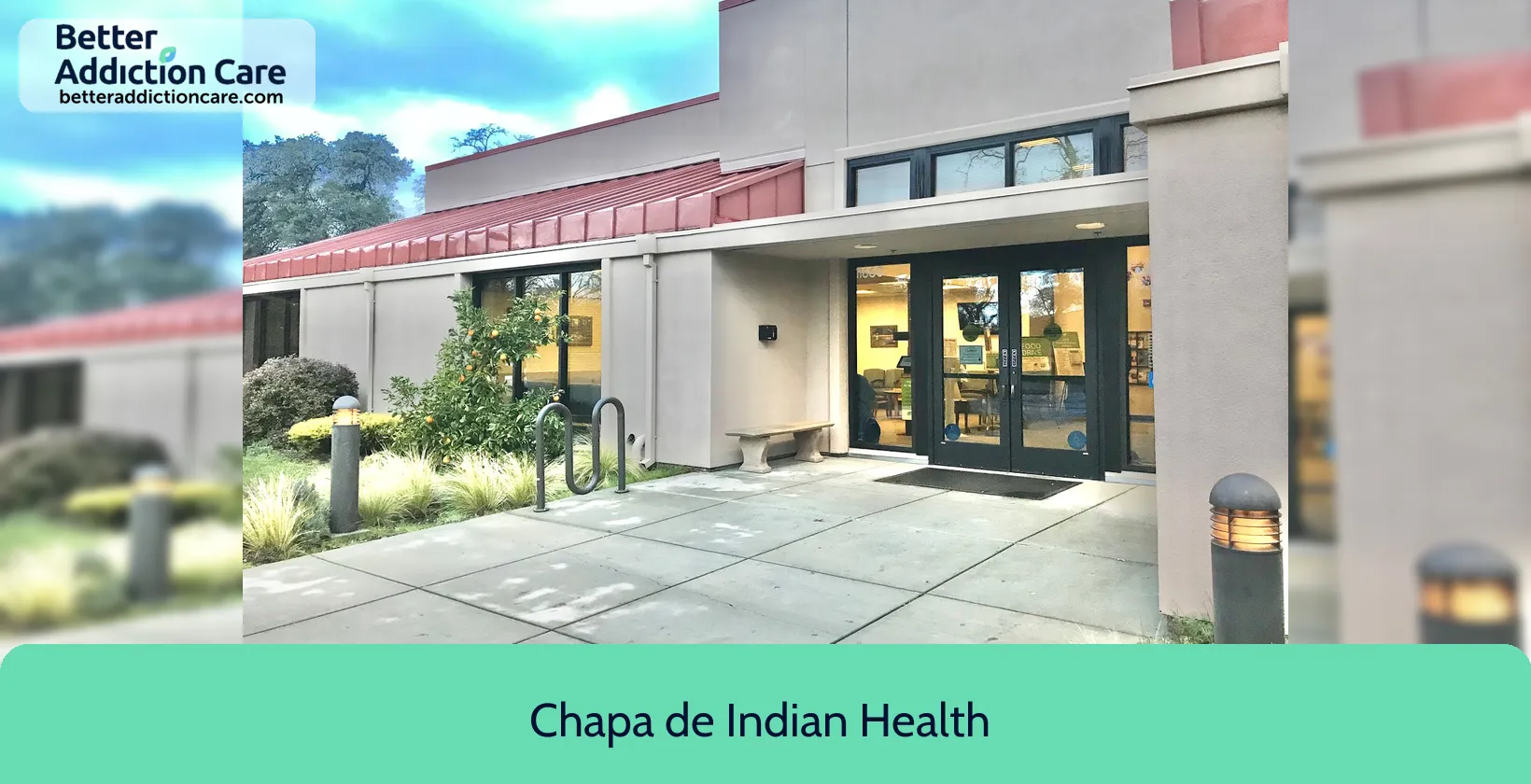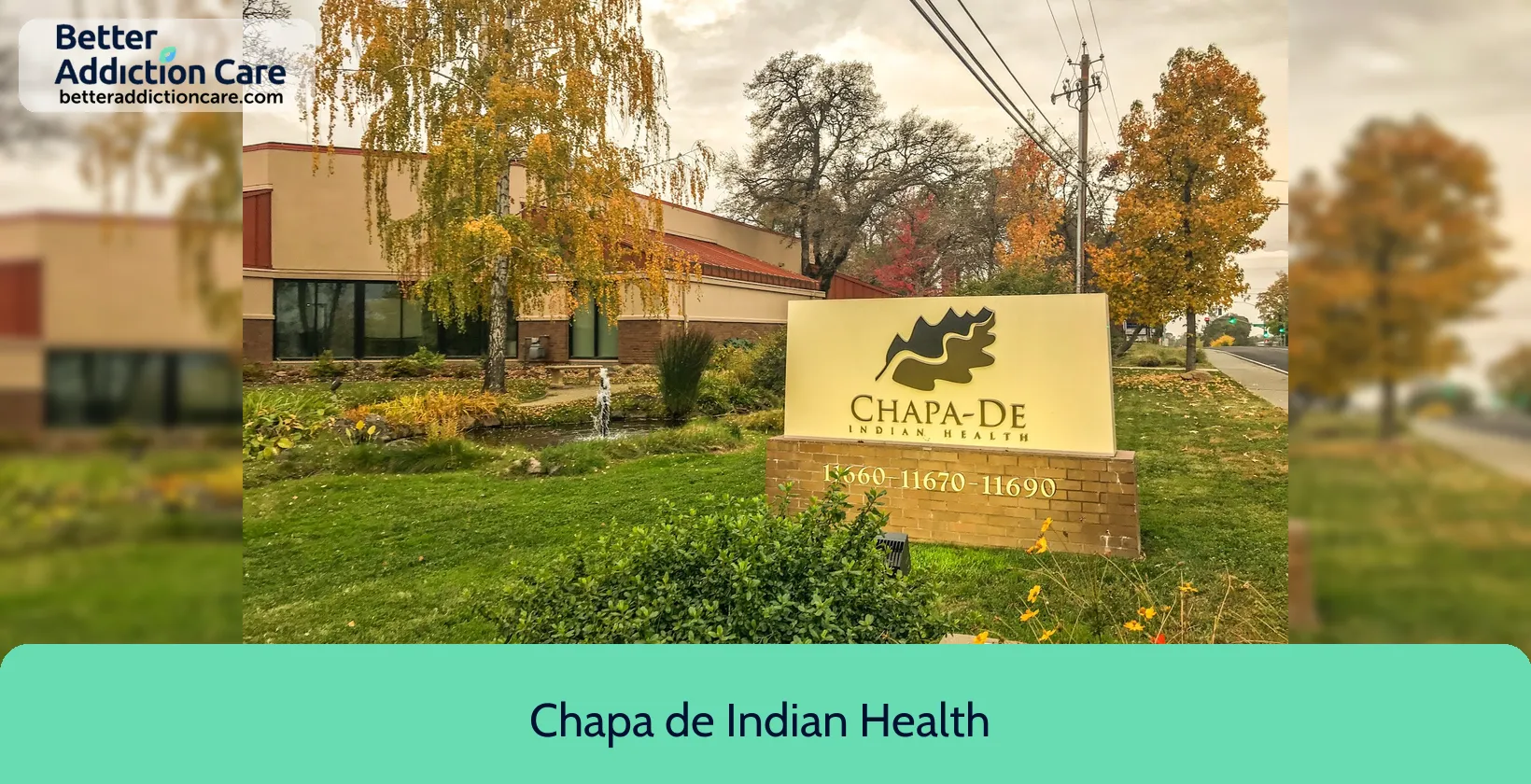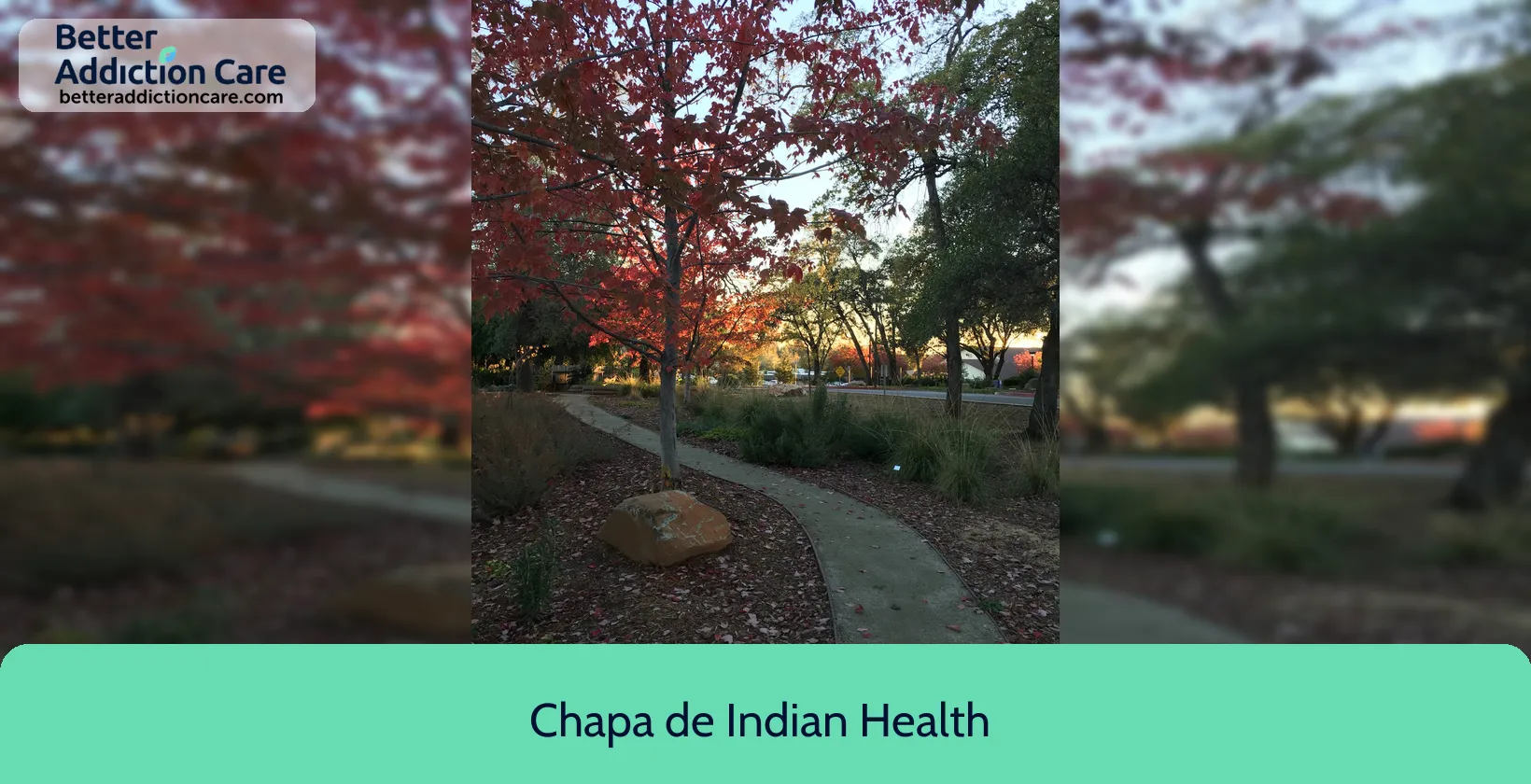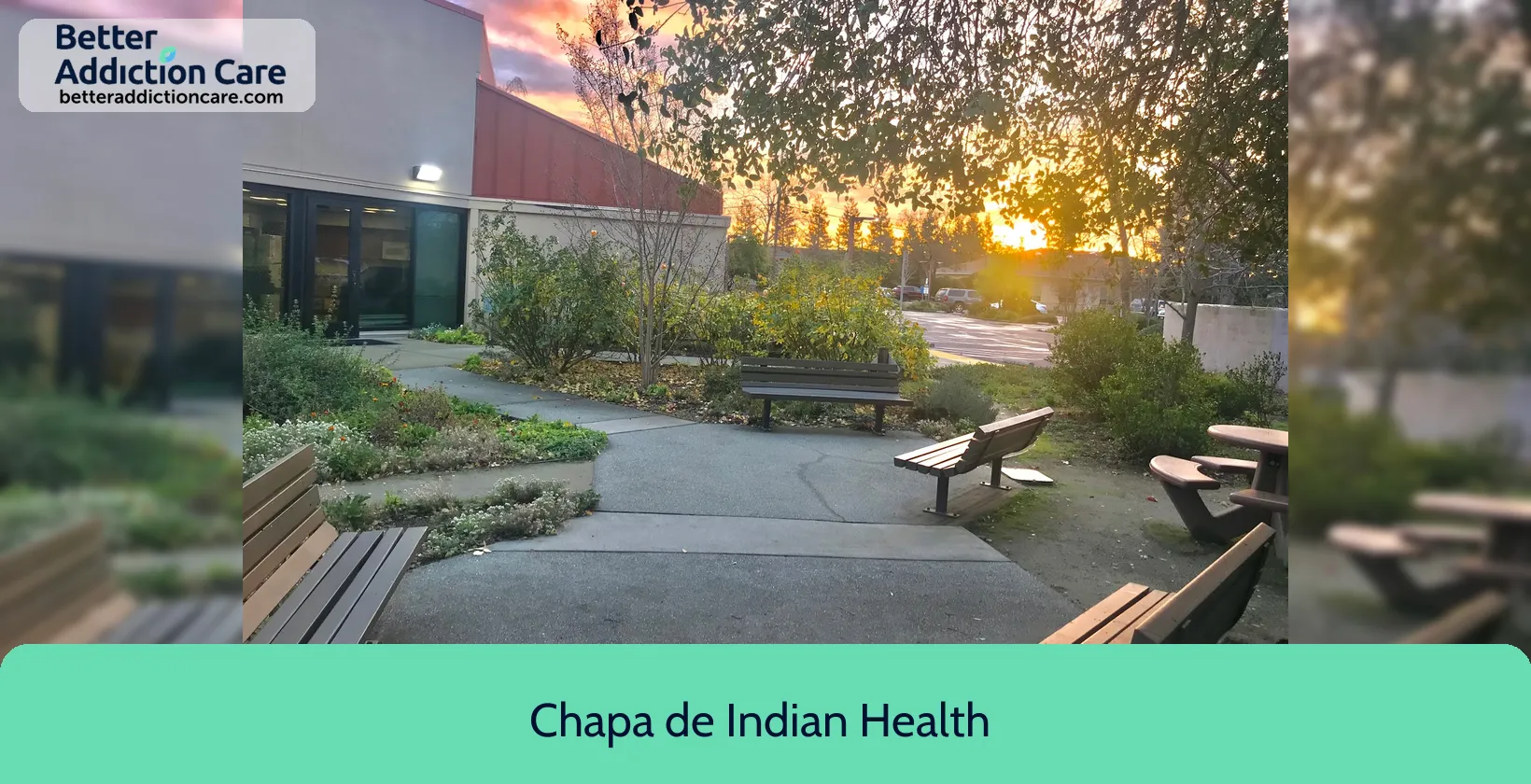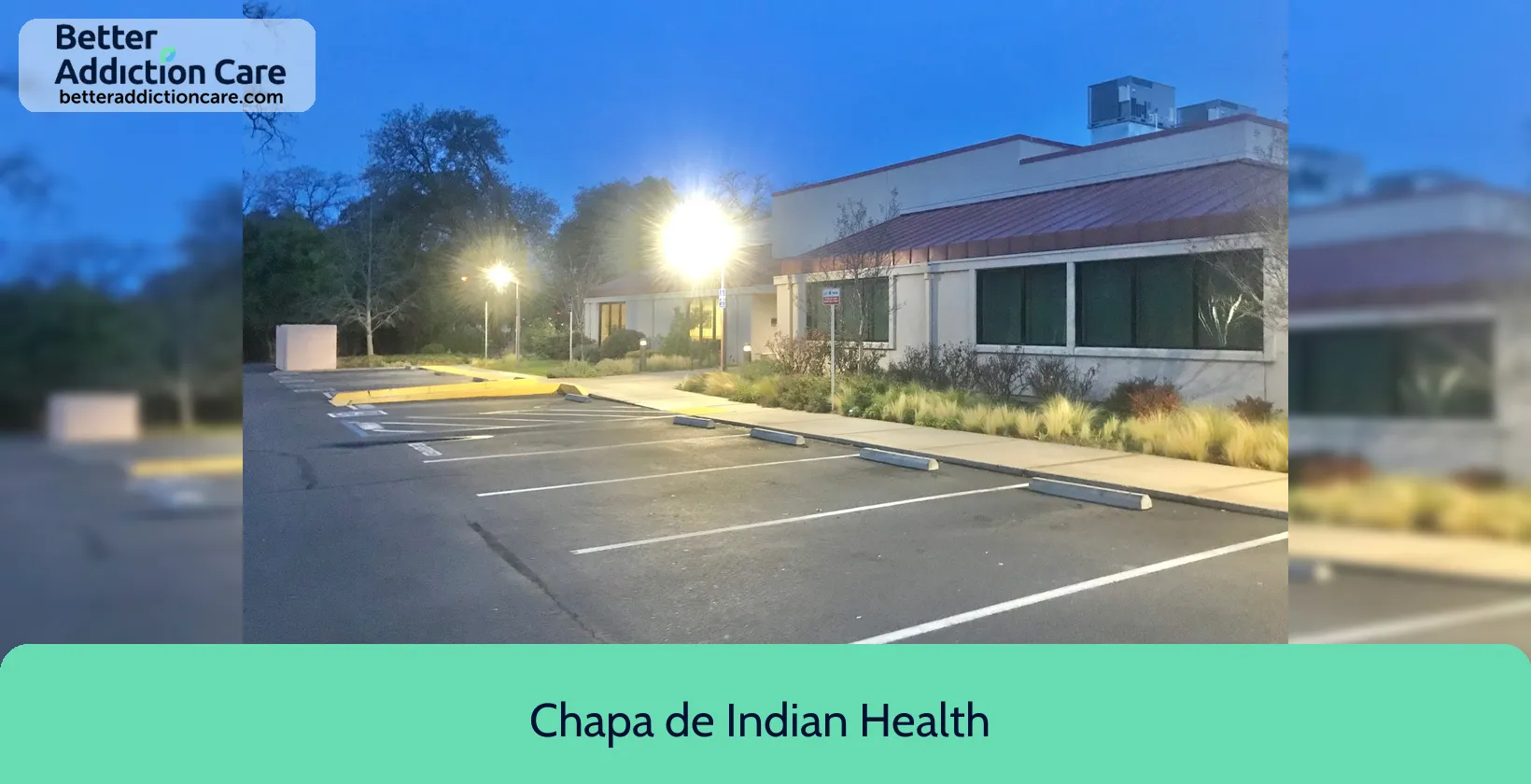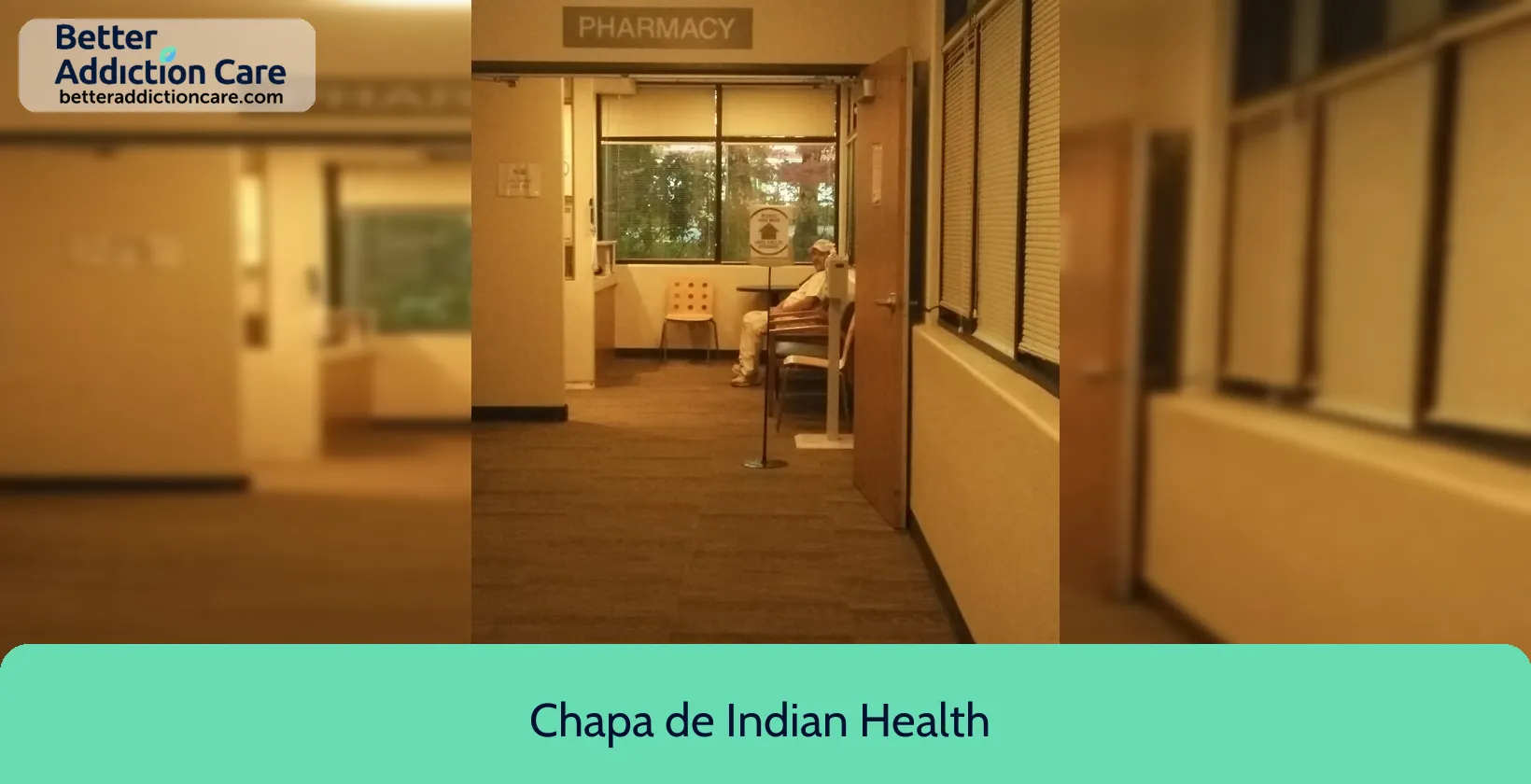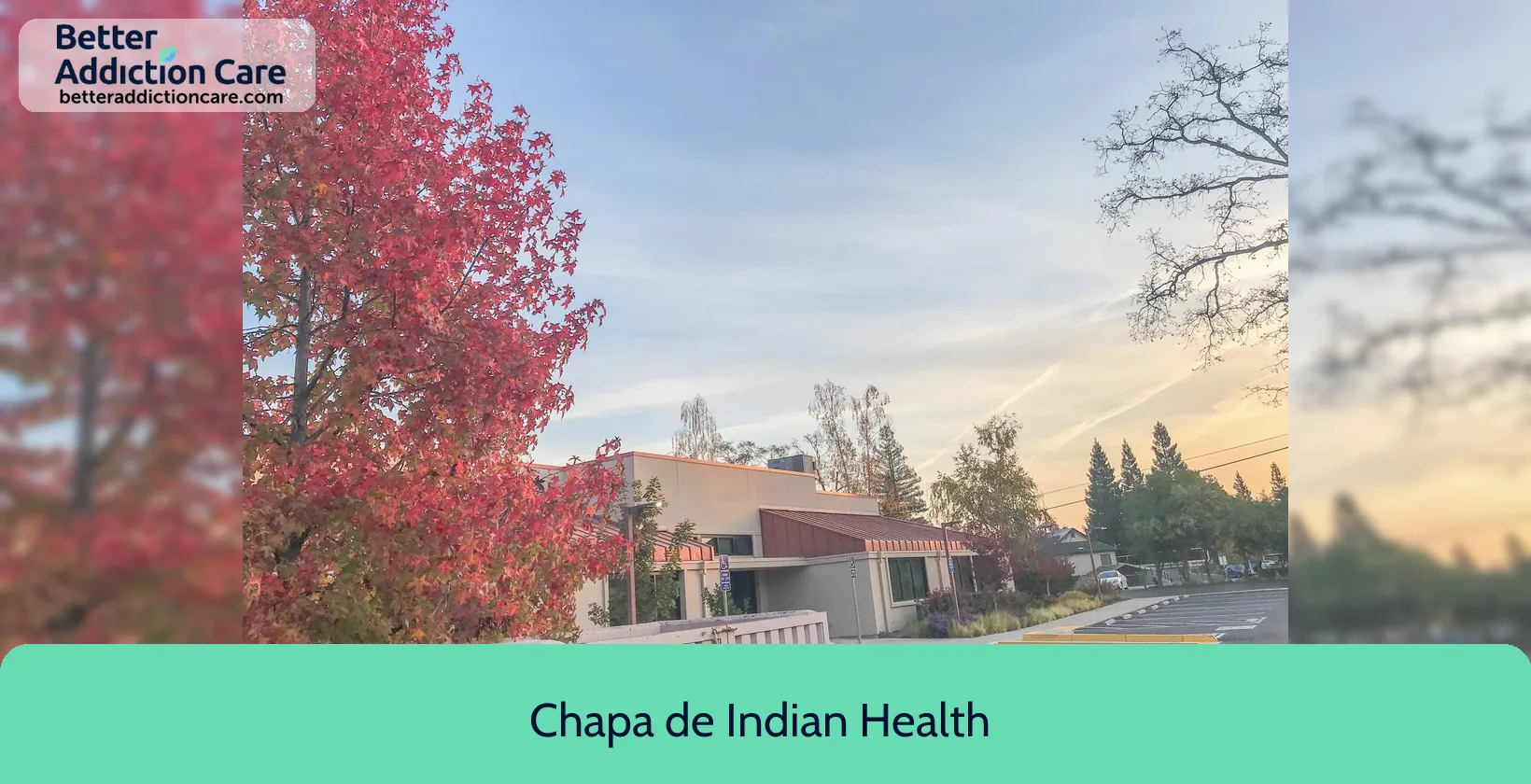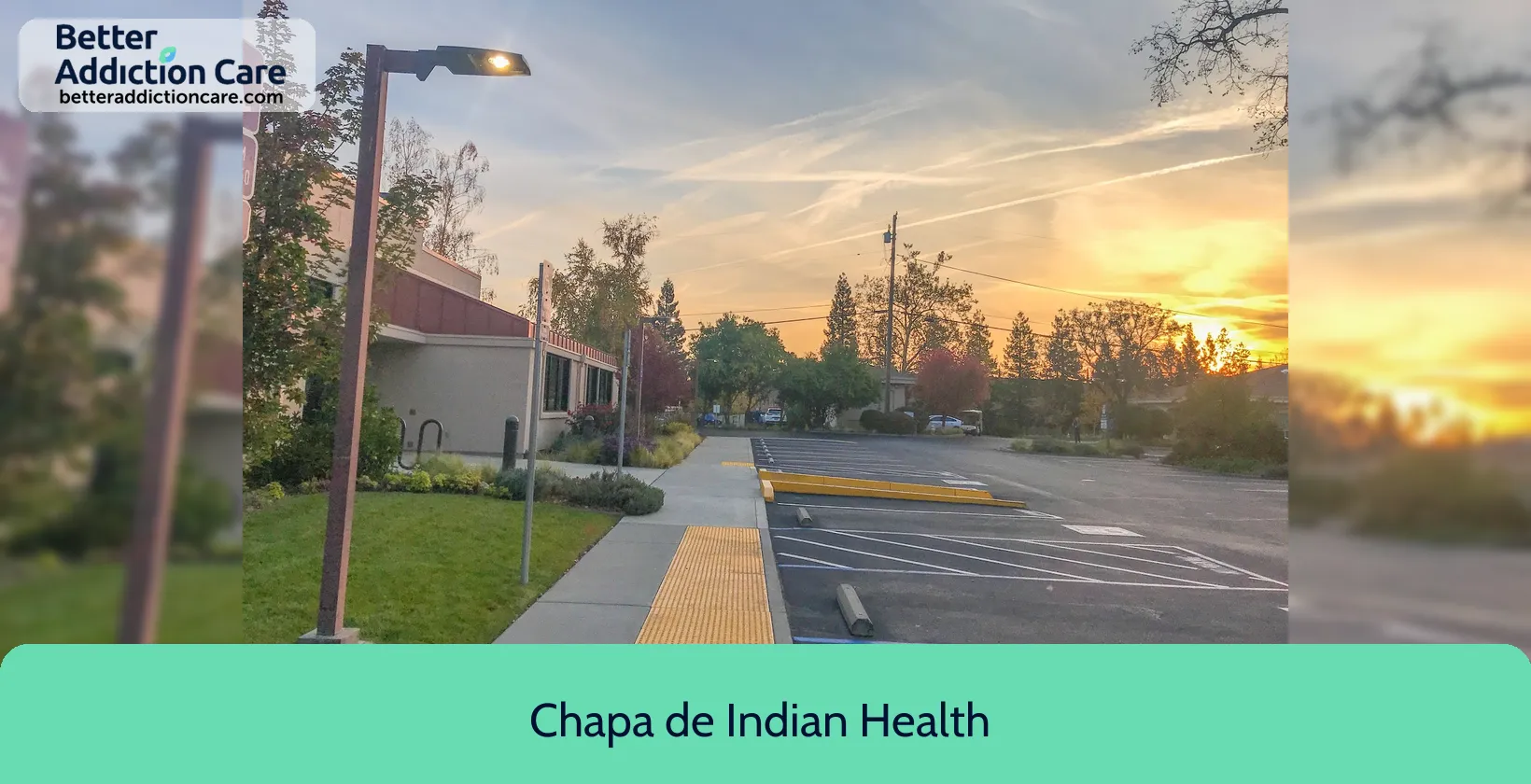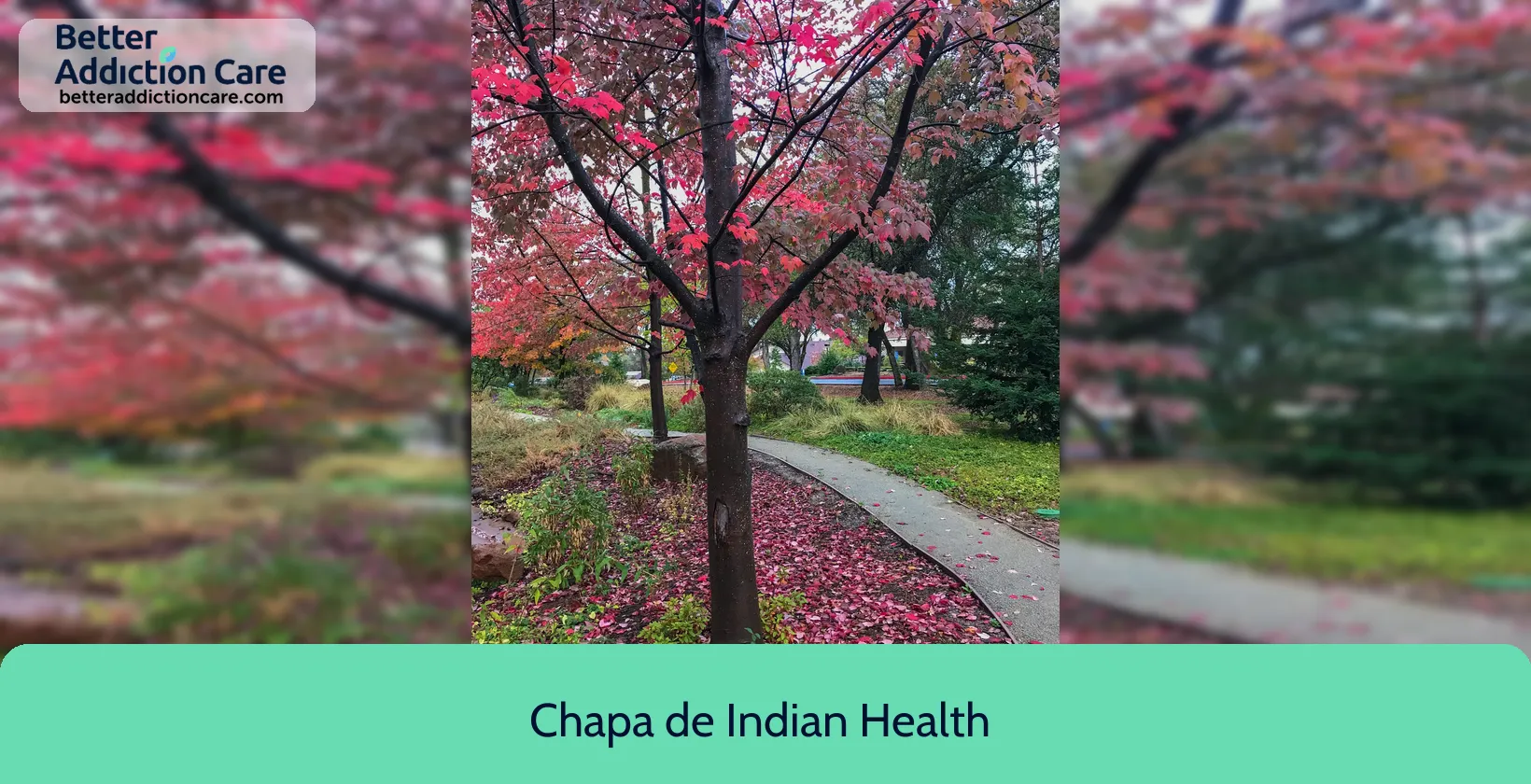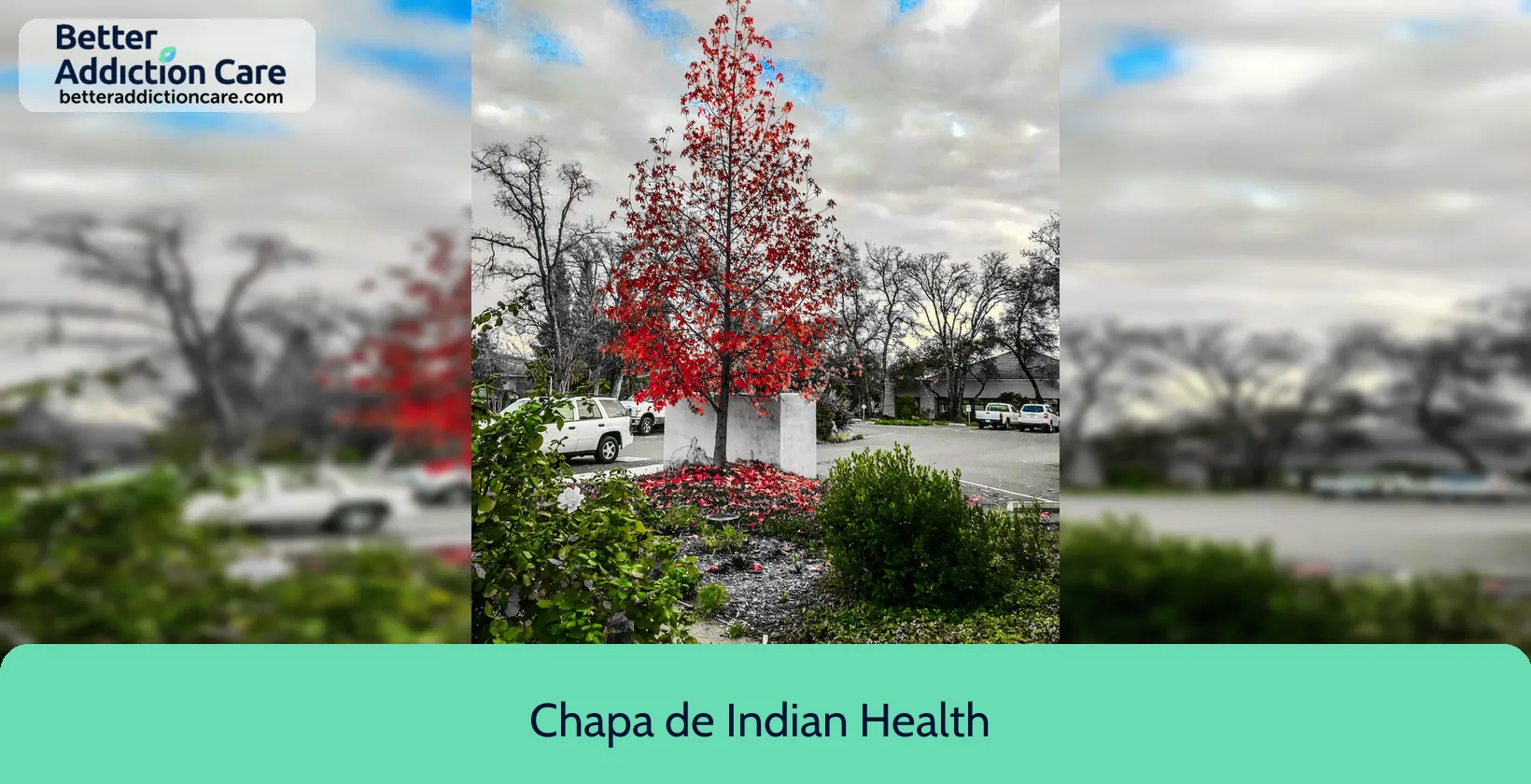Chapa de Indian Health - Substance Abuse
Overview
Chapa de Indian Health - Substance Abuse is an accredited substance abuse treatment center that provides outpatient detoxification, for men and women from 18+ years of age. As part of their special programs, Chapa de Indian Health - Substance Abuse treats pregnant/postpartum women and clients who have experienced trauma. To help patients achieve sobriety, Chapa de Indian Health - Substance Abuse provides intake assessments. Afterward, patients receive group counseling, individual psychotherapy, and cognitive behavioral therapy during treatment. Chapa de Indian Health - Substance Abuse is located in Auburn, California, providing treatment for people in Placer County, accepting 638 contracts, medicaid, and private health insurance.
Chapa de Indian Health - Substance Abuse at a Glance
Payment Options
- 638 contracts
- Medicaid
- Private health insurance
- Cash or self-payment
- Payment assistance (check with facility for details)
Assessments
- Comprehensive mental health assessment
- Comprehensive substance use assessment
Age Groups
- Adults
- Children/adolescents
- Young adults
Operation
- Private for-profit organization
Highlights About Chapa de Indian Health - Substance Abuse
6.78/10
With an overall rating of 6.78/10, this facility has following balanced range of services. Alcohol Rehabilitation: 8.00/10, Drug Rehab and Detox: 6.62/10, Insurance and Payments: 6.00/10, Treatment Options: 6.49/10.-
Alcohol Rehabilitation 8.00
-
Drug Rehab and Detox 6.62
-
Treatment Options 6.49
-
Insurance and Payments 6.00
Accreditations
SAMHSA certification for opioid treatment program (OTP):
SAMHSA's Opioid Treatment Programs (OTP) Accreditation is a rigorous recognition process, signaling an OTP's commitment to high-quality care for those with opioid use disorders. It assures patients, families, and the community that the program adheres to evidence-based practices, maintains a safe environment, and employs qualified staff. This accreditation represents a commitment to addressing the opioid epidemic and promoting recovery, symbolizing quality and accountability in opioid addiction treatment.
Treatment At Chapa de Indian Health - Substance Abuse
Treatment Conditions
- Mental health treatment
- Alcoholism
- Opioid Addiction
- Substance use treatment
- Co-occurring Disorders
Care Levels
- Detoxification
- Outpatient
Treatment Modalities
- Group counseling
- Individual psychotherapy
- Cognitive Behavioral Therapy
- Motivational Interviewing
- Trauma-related counseling
Ancillary Services
Languages
- Sign language services for the deaf and hard of hearing
- Spanish
Special Programs
- Pregnant/postpartum women
- Clients who have experienced trauma
Get Help Now
Common Questions About Chapa de Indian Health - Substance Abuse
Contact Information
Other Facilities in Auburn

6.64

6.65
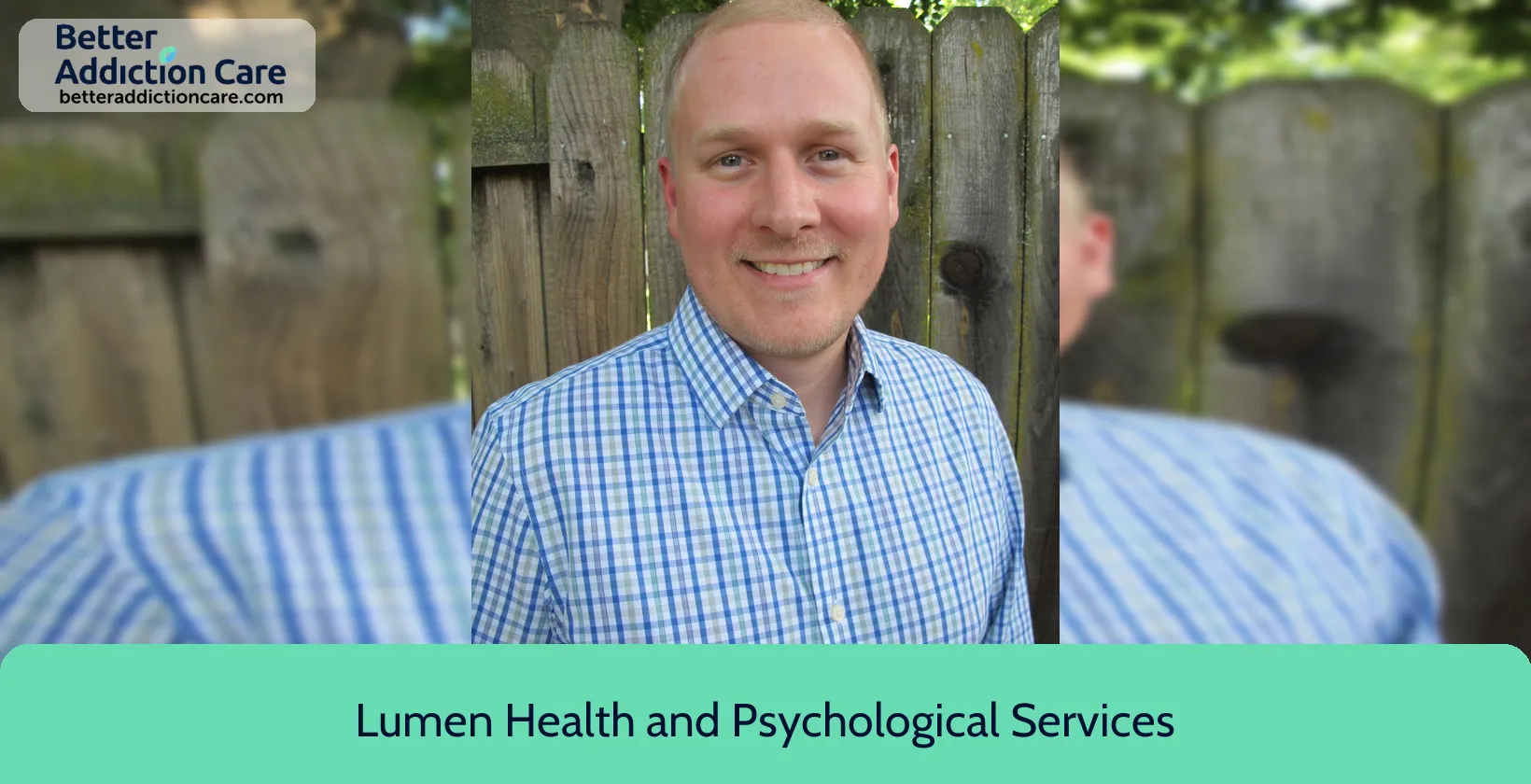
6.56
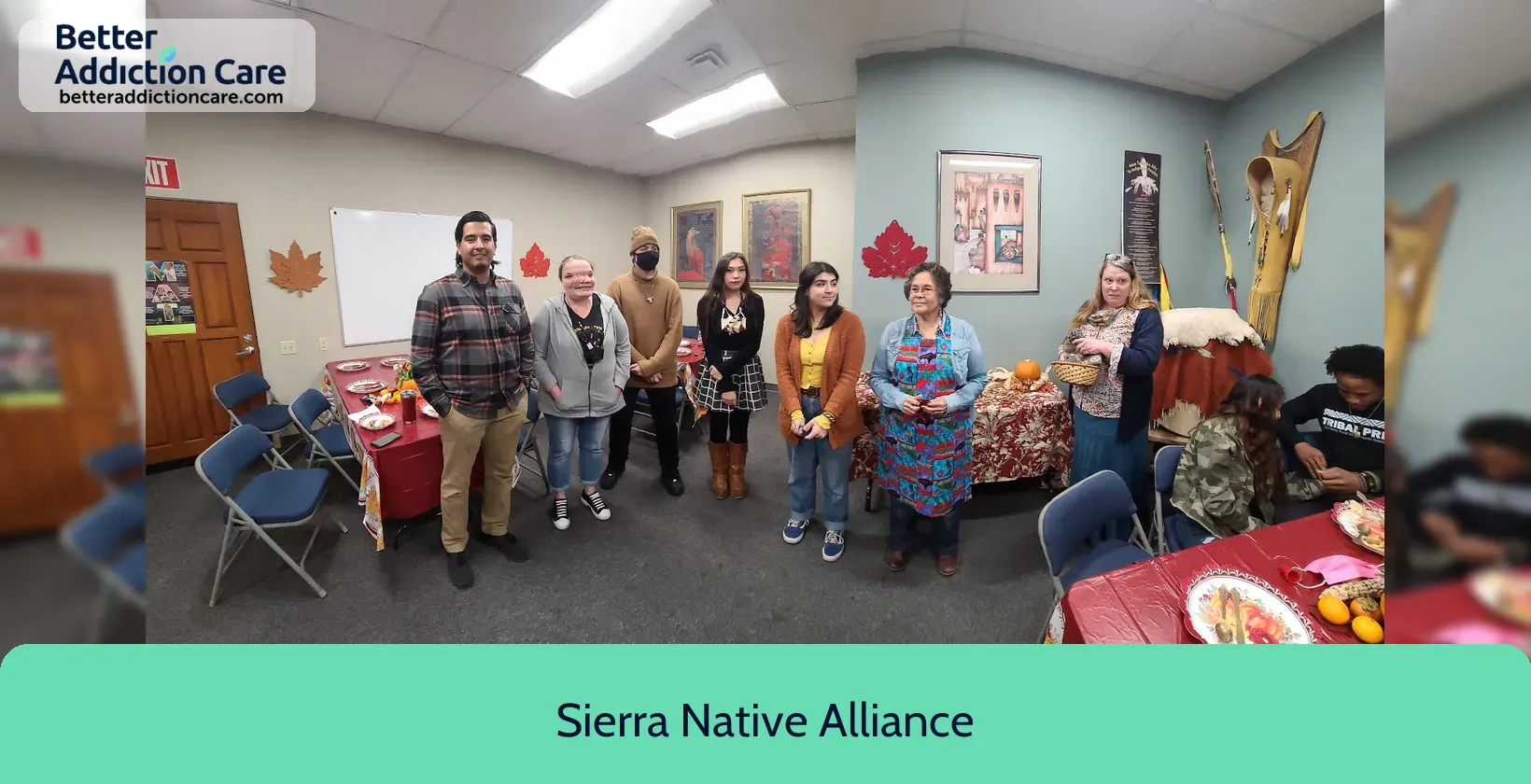
6.56
DISCLAIMER: The facility name, logo and brand are the property and registered trademarks of Sierra Native Alliance, and are being used for identification and informational purposes only. Use of these names, logos and brands shall not imply endorsement. BetterAddictionCare.com is not affiliated with or sponsored by Sierra Native Alliance.
